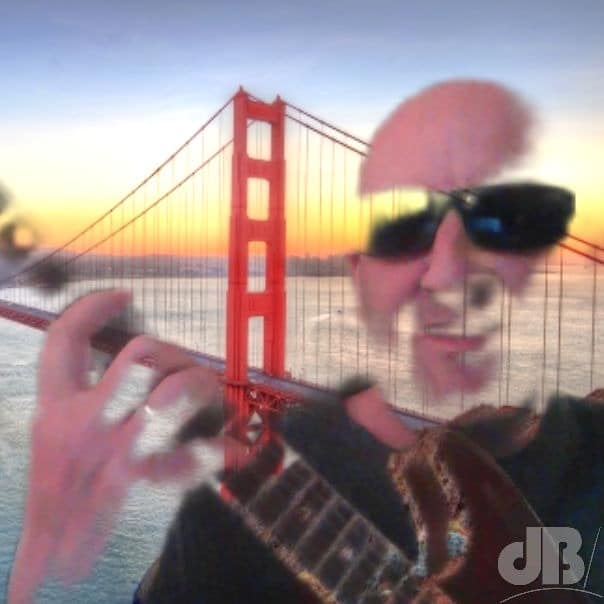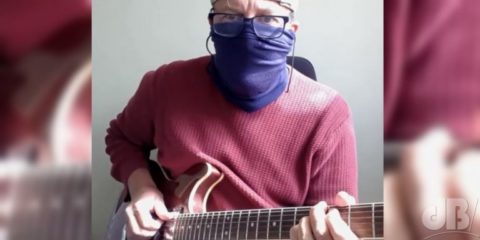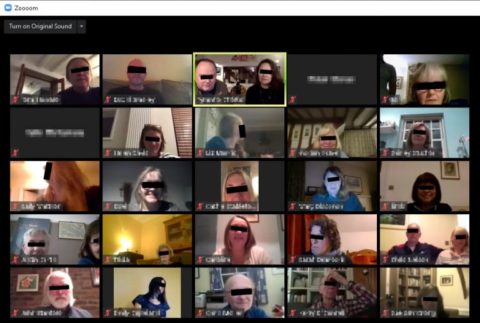Zoom burnout, they’re calling it.
We’ve probably all experienced it by now, that feeling of exhaustion and of having Zoomed too far, joined one two many “webinars”, Whatsapped a bit too much with the family, argued over the quiz results, and drank far too much “at” far too many friends on House Party.

You’ve logged in and fiddled with mic and cam settings until everyone in the video-chat can see and hear you. You’ve waited, sometimes minutes, for the host to show up and let you all in. You’ve put up with the audio feedback issues when two of you are in the same room and in the same chat.
You’ve changed your background to the blue planet and to the Golden Gate Bridge, and the palm trees on the beach. You’ve had the Aurora whisping away behind you as your face mysteriously modulates from visible to invisible and back again like Alice’s Cheshire Cat. You’ve even downloaded all those empty TV studio set photos from the BBC. You’ve virtually sat in Noel’s chair from Multicoloured Swap Shop, you’ve pondered which era Doctor Who that particular TARDIS background is [Peter Davidson] and one of your best friends hopped aboard The Liberator and shouted Avon calling in the most camp voice possible. You’ve searched to see if there is a Tomorrow People background, so you might chat with Tim in the frame and jaunt about a bit.

Then there’s the issue of which app to actually use for the best experience. Zoom is okay, but it sometimes gets overloaded and it’s definitely overloaded with tabloid scaremongering so some friends won’t use it. You’ve tried to persuade others to opt for yet another app or website. “This one’s better, it’s faster, there’s no privacy or issues [there are always privacy and security issues].
There’s even the vague possibility that we might all be able to sync up and sing or play instruments together across the ether because this new app has much lower sound delay, latency, [it doesn’t, none of them have a sufficiently low delay to let musicians perform together online].

Your eyes are feeling blurry, you’re thinking…it’s the staring at the screen for so long, that’s why you feel so tired. But, we’ve all been staring at screens interminably for years, it’s not that. It’s something else. Maybe it’s the needing to be constantly “on”. Constantly concentrating on all those faces staring slightly askew in their blue reflected haze.
It’s neither of those things.
Maybe it’s the lack of body language cues. It’s hard to converse and fully engage without seeing someone’s expressive hands and shoulder shrugs. But, as we’re all sitting on our hands to stop us touching our faces anyway, those cues are always off-limits. But, it’s not that either. We’ve managed on the good-old telephone with no video for decades with no real problems.

So, what is it, why are we all feeling burned out and a little melancholic, miserable even, after all this facetime zooming by? We should be happy that despite the global pandemic those of us with the tech can still cling to each other, sticking together while we’re apart, as it were. Very unfortunate for those in places with no tech…for so many reasons.
Could it be that every time we fire up those webcams and tweak that background, for another online chat that we are simply mourning the loss of what we had? The meeting up in the real world, the pubs, the clubs, the musical rehearsals, the live theatre and music festivals, the art galleries and museums, the beauty spots, the far-flung holidays, the freedom? The freedom from worry about catching or spreading a lethal pathogen? I think so.
Zoom burnout isn’t tiredness. It isn’t the strain of feeling one’s eyes going square like we were warned about back in the days of proper television with just three channels. It isn’t irritation at the silly backgrounds and the clamouring, clanging sounds of everyone trying to talk at once.
It’s grief.
It’s bereavement.
It’s mourning.
For the life we’ve lost…
…for now.